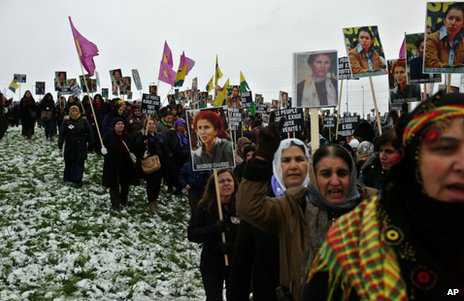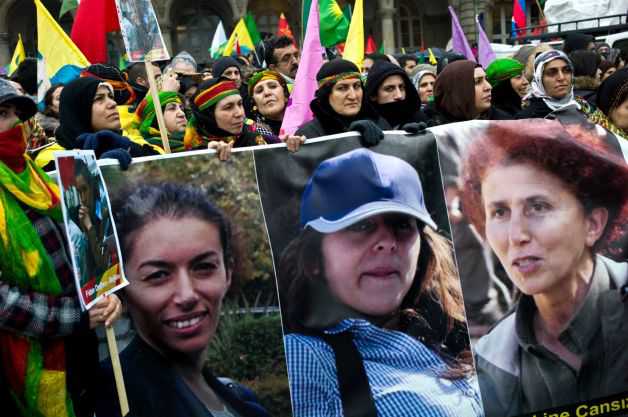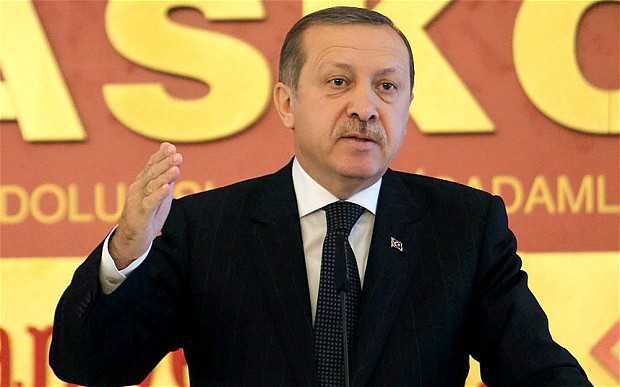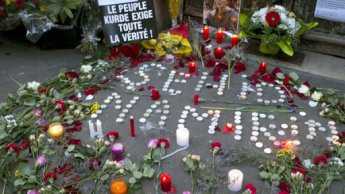The assassinations last week in Paris of three female Kurdish activists from Turkey have, for now at least, had the opposite effect to the one their perpetrators almost certainly intended.
Instead of engulfing the country with Kurdish anger, Turkish cynicism and a new cycle of violence, the killings have revealed the depth of public and political support behind efforts to negotiate an end to three decades of insurgency by the Kurdistan Workers’ Party, better known as the PKK.
Ruling-party politicians including Prime Minister Recep Tayyip Erdogan, leaders of the Kurdish movement, Turkey’s main opposition Republican People’s Party, Kurdish intellectuals and the news media have reacted to the professional slaying of the three pro-PKK activists by urging the two sides to redouble their efforts toward a peaceful settlement of this bloody conflict.
Most in Ankara seem to agree that the attack in Paris aimed to derail the peace talks, even as theories abound on who did it, including fears that the deaths may be the result of new hostility between Turkey and several of its Middle Eastern neighbors.
After an initial shock, Turkish and Kurdish opinion makers seem to accept it is unlikely that either the Turkish government or the PKK’s mainstream leadership had any reason for sending a hit man to wreck the remarkably hopeful new talks that started late last year between Turkey’s National Intelligence Organization and the jailed PKK leader, Abdullah Ocalan.
Added Anger
There is no room for complacency. An anguished Kurdish reaction shows that at a minimum, the attack added anger to the distrust between the Turkish state and its 15 percent to 20 percent Kurdish population.
Policy makers in Ankara also have new cause to worry that opposition within the PKK may mean that Ocalan can’t deliver any peace deal they may eventually strike with him.
And right-wing Turkish nationalists also still look for any chance to trip up Erdogan’s efforts to find a compromise end to the PKK conflict. All sides should be vigilant in their public statements and actions so as not to further shake brittle confidence.
Still, the opportunity at hand for peace is of major importance. The PKK’s insurgency since 1984 is often shrugged aside as obscure and distant, though it has devastated southeastern Turkey, killed more than 30,000 people, cost the country $300 billion, displaced hundreds of thousands and, in 1998, came close to sparking a war between Turkey and Syria.
In just the 18 months since the previous talks with the PKK were broken off, an informal, minimum tally by International Crisis Group counts almost 900 people killed.
Critically, senior figures on both sides at last clearly accept that neither can obtain an absolute political or military victory.
More than a year without any elections gives Erdogan the political space he needs to secure a settlement ahead of his probable bid for the presidency in mid-2014. Signals of goodwill include the government’s decision last week to allow Ocalan the same access to watch television as other inmates and permission for Kurdish movement leaders to visit him on Imrali island, where he is guarded with a handful of other prisoners in the Sea of Marmara.
During the so-called democratic opening and talks with the PKK in 2005 through 2011, Erdogan prepared Turkish public opinion for unprecedented steps, such as enabling Kurdish- language television broadcasts, holding publicly acknowledged talks with PKK leaders and offering optional Kurdish language lessons in schools.
Abandoned Initiative
Unfortunately, Erdogan abandoned that initiative halfway in the face of domestic opposition. This time, the signs are better. Even before the deaths in Paris, the opposition Republican People’s Party for once put daily politics aside to support the peace initiative. The powerful exiled Muslim leader Fethullah Gulen has also personally pledged his support for the talks.
If the PKK insurgency roars back into life, it’s not just the potential death toll that is fearsome. Turkey’s relations with its Middle Eastern neighbors will probably sour further, too.
A PKK sister party has emerged as a dominant force among Syrian Kurds, 10 percent of the Syrian population, who mainly live along the northern Syrian border with Turkey. Iraq’s central government, at loggerheads with Turkey for two years, has signaled new opposition to Turkish air force raids on PKK bases in northern Iraq. And a Turkish deputy prime minister has accused Iran of allowing the PKK to operate over the mountainous Turkish-Iranian border.
Nevertheless, the government appears committed to what Yalcin Akdogan, the prime minister’s main adviser on Kurdish affairs, said this month was a vision for a “final settlement.”
He revealed details of the government’s thinking that suggest it may be overconfident on two points: that hardline PKK leaders are tired and only want to go home, and that Ocalan can easily order thousands of PKK fighters to withdraw from Turkish territory. Akdogan acknowledged, however, that any Turkish plan had to do more than just fight the PKK and deal with the Kurdish issue as a whole.
Closed negotiations between the state and Ocalan are unlikely to succeed if they aren’t part of a broader social- political change and a comprehensive conflict-resolution strategy.
To reach its goal of disarming and reintegrating the PKK insurgents, such a policy will have to include: removal of discrimination from the constitution and laws; releasing from custody the thousands of nonviolent Kurdish activists arrested since 2009; full mother-language education where there is sufficient demand; a lowering of the national election threshold from 10 percent to the European norm of 5 percent, to allow the legal Kurdish party to compete fairly; and real work on Turkey’s political decentralization.
Inching Closer
The government and the Kurdish national movement are inching closer together, even though their demands and time frames remain far apart. The movement still seeks freer access to news media, more open jail conditions for Ocalan and legal acceptance for a pro-PKK umbrella organization called the Kurdistan National Congress. Selahattin Demirtas, co-chairman of the Kurdish Peace and Democracy Party, pointed out last week that there is so far “no road map, no plan for a solution and no scheduled program” to solve “30 ongoing years of blood and tears with a history of almost 100 years of deep-rooted historical, social, political, cultural and economic problems.”
Still, for once a Kurdish leader such as Demirtas could also say he now detects on both sides “a determined will and desire for a solution.”
(Hugh Pope is the Turkey-Cyprus project director for the International Crisis Group and co-author of “Turkey Unveiled: a history of modern Turkey.” The opinions expressed are his own. Follow him on Twitter at @Hugh_Pope.)





